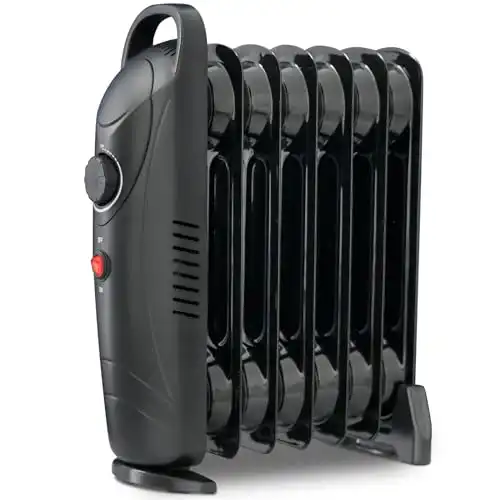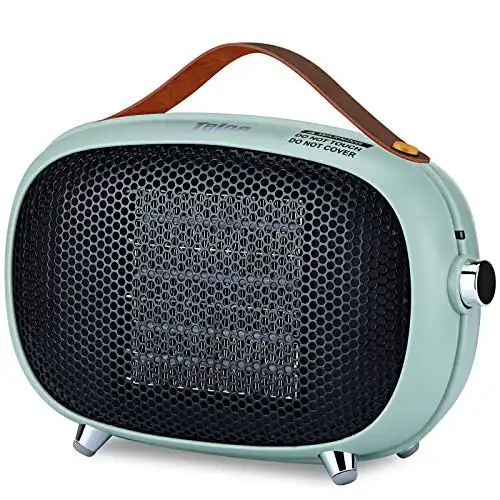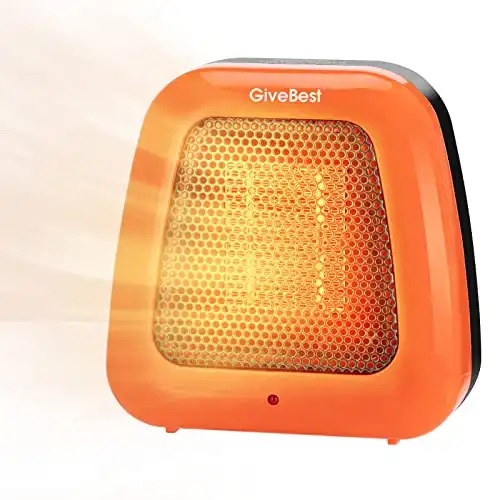Is your cozy winter night constantly interrupted by a dreaded trip to the basement to reset a tripped breaker? The solution isn't just about finding the warmest heater, but finding one that won't overload your electrical system.
The frustration of a space heater constantly tripping the circuit breaker is a common experience during the colder months. It's a disruptive cycle: the room gets chilly, the heater kicks on, and then darkness. A sudden power outage, the telltale sign of a tripped breaker, leaves you scrambling in the dark, especially inconvenient when it happens in the dead of night. The quest for warmth shouldn't involve constant interruptions and trips to the electrical panel. Understanding why this happens and knowing how to prevent it can make all the difference. Lets look at the reasons for it, and ways to mitigate the situation.
| Topic | Information |
|---|---|
| Problem | Space heaters tripping circuit breakers. |
| Common Culprit | Overloaded circuits due to high wattage heaters. |
| Wattage Range of Concern | 1500 watts is a common cause of tripped breakers. |
| Recommended Wattage | 400 to 800 watts for space heaters that are less likely to trip breakers. |
| Safety Measures |
|
| Breaker Amperage | Important to know whether the breaker is 10, 15, or 20 amps to determine the heater's compatibility. |
| Continuous Load Limit | A 15 amp breaker can reliably handle about 12 amps continuously. |
| Potential Causes |
|
| Solutions |
|
The reason behind a tripped breaker when using a space heater often boils down to simple electrical overload. Most standard space heaters consume around 1500 watts of power. When plugged into a typical household circuit, which is often rated for 15 amps, the heater can easily draw close to the maximum capacity. In fact, a 15-amp circuit is designed to handle about 12 amps continuously. Exceeding this limit, especially when other appliances are running on the same circuit, causes the breaker to trip as a safety measure to prevent overheating and potential fire hazards. To put it simply, the circuit becomes overwhelmed by the combined electrical demands.
A faulty space heater can also be the culprit. If the heating element is damaged or there's a short circuit, the heater might draw excessive current, instantly tripping the breaker. This is a critical safety feature, as a faulty heater can pose a significant fire risk. In some cases, the heater's internal safety mechanisms might also trigger a breaker trip. For example, if the heater is tilted or unstable, an internal protection system could shut it off, and in some instances, trip the breaker as well. This is designed to prevent the heater from operating in a potentially hazardous position.
Even if you're using a space heater with a seemingly reasonable wattage, an older breaker that has been consistently run near its maximum capacity might become more sensitive and trip at lower loads. Over time, breakers can degrade, effectively reducing their amperage rating. What was once a reliable 15-amp breaker might now trip closer to 12 amps due to wear and tear. This means that even if the heater is technically within the circuit's original capacity, the weakened breaker can still trigger, leading to unexpected power interruptions.
So, how do you prevent these frustrating breaker trips? The first step is to understand the electrical capacity of the circuit you're using. Look at the breaker itself to determine its amperage ratingit's usually labeled as 15A or 20A. Keep in mind that a 15-amp breaker can reliably handle about 12 amps continuously. To calculate the maximum wattage you can safely use on the circuit, multiply the voltage (typically 120 volts in the US) by the amperage. For a 15-amp circuit, this equals 1800 watts, but remember the continuous load limit, which brings it down to about 1440 watts (12 amps x 120 volts). On the other hand, many space heaters come with both 750W and 1500W settings, but they may still trip breakers regardless.
- Liv Walkers Love Island Usa Journey Bombshell To Bestie
- Miley Cyruss Wildest Nude Moments You Wont Believe It
Choosing the right space heater is crucial. Models that operate between 400 and 800 watts are generally less likely to trip breakers. While they might not provide the same level of intense heat as a 1500-watt heater, they offer a safer and more stable heating solution. The goal is to find a balance between sufficient warmth for the room and a low enough wattage to avoid overloading the circuit. Consider a compact and lightweight model that can be easily moved from room to room, especially if you plan to use it in different areas of your home. Smaller heaters typically consume less power, reducing the risk of tripping the breaker.
Before plugging in your space heater, take a moment to assess the other appliances and devices connected to the same circuit. Are there other high-wattage items like TVs, gaming consoles, or kitchen appliances drawing power from the same outlet or circuit? If so, consider unplugging some of these devices to reduce the overall load. Overloading a circuit is a common cause of breaker trips, and simply redistributing the electrical demand can often solve the problem. It's important to be mindful of the combined wattage of everything plugged into the circuit.
Using a dedicated circuit for your space heater is the ideal solution. This means plugging the heater into an outlet that's on its own circuit breaker, with no other devices drawing power from it. Dedicated circuits are less likely to be overloaded, providing a more stable and reliable power supply for the heater. If you're unsure whether an outlet is on a dedicated circuit, you can test it by turning off breakers one by one until you find the one that controls that particular outlet. If your home doesn't have readily available dedicated circuits, you might consider having an electrician install one to accommodate your heating needs.
Extension cords are generally not recommended for space heaters. They can be a fire hazard, especially if they're not heavy-duty enough to handle the heater's power draw. Extension cords can overheat, potentially damaging the cord itself and increasing the risk of a fire. It's always best to plug the space heater directly into a wall outlet. If you must use an extension cord, make sure it's a heavy-duty cord with a gauge appropriate for the heater's wattage, and never use multiple extension cords connected together. The general recommendation is not to use extension cords at all.
Regularly inspect the space heater's cord for any signs of damage, such as fraying, cracking, or exposed wires. A damaged cord can create a short circuit, leading to a breaker trip and posing a serious safety hazard. If you notice any damage, stop using the heater immediately and have it repaired or replaced. It's also a good idea to check the outlet itself for any signs of damage or overheating. If the outlet feels warm to the touch or you notice any discoloration, consult an electrician to have it inspected and repaired.
Even if you've taken all the necessary precautions, a space heater might still trip the breaker occasionally. If this happens, there are a few troubleshooting steps you can take. First, make sure that the breaker is fully switched off before resetting it. Then, switch it back on. If the breaker trips again immediately, there might be a more serious issue with the heater or the electrical circuit. In this case, it's best to consult an electrician to diagnose and repair the problem. Don't repeatedly reset the breaker without addressing the underlying cause, as this can be dangerous and could potentially damage your electrical system.
Understanding how circuit breakers work is essential for safe and efficient heater use. Circuit breakers are designed to protect your home from electrical overloads and short circuits. They act as safety switches, automatically cutting off the flow of electricity when the current exceeds a certain level. This prevents overheating, which can lead to fires. Different breakers have different amperage ratings, and it's important to know the rating of the circuit you're using for your space heater. If the breaker consistently trips even when you're taking all the necessary precautions, it might be time to upgrade your electrical panel to accommodate your power demands.
Ensure a warm and safe environment by following these expert tips. Keep flammable materials at least three feet away from the space heater to prevent fire hazards. Never leave a space heater unattended, especially when children or pets are present. Turn off the heater when you leave the room or go to bed. By taking these simple precautions, you can enjoy the warmth of a space heater without compromising safety. Remember, a little bit of knowledge and caution can go a long way in preventing electrical problems and ensuring a cozy and safe winter.
The Givebest digital space heater is a good option for space heaters. It is a portable electric heater that provides instant, safe, and stable heating. With its inbuilt PTC heating elements, this indoor space heater ensures constant and reliable heat. It offers 4 modes, including 1500w, 750w, and eco mode for economical use. A single heat setting draws a low amount of energy that helps keep costs down, and because it's such a low energy draw it less likely to trip the circuit breaker.
Consider the amperage of the breaker when selecting a space heater. Without knowing this crucial piece of information, it's impossible to provide accurate advice. For example, running a 1500-watt space heater on a 10 or 15 amp breaker is almost guaranteed to cause it to trip. Remember that while you shouldn't continuously use more than 1500w on a 15a circuit, breakers are often designed with a bit of leeway. You might not trip the breaker until you exceed 1875w, giving you a small margin of safety.
The experience of a sudden chill, flickering lights, and the realization that your space heater has tripped the breaker is a common winter frustration. It often leads to chilly trips to the basement to reset the breaker, a task that nobody enjoys, especially in the middle of the night. The desire for a conveniently located reset switch near the wall outlet is understandable. However, understanding the causes of breaker trips and taking preventative measures can help avoid these inconvenient interruptions.
If a space heater consistently trips a circuit breaker, it's a warning sign that should not be ignored. It's crucial to address the problem to ensure that the heater can operate safely and reliably without constantly requiring a reset. This could involve reducing the load on the circuit, using a lower-wattage heater, or consulting an electrician to assess the electrical system. Ignoring the warning signs could lead to more serious electrical problems and potential fire hazards.
When a space heater, particularly a powerful 1500w model drawing 12.5 amps, is used on a circuit with other appliances, the combined load can exceed the circuit's capacity, causing the breaker to trip. This is a classic example of an overloaded circuit. To avoid this, it's important to be mindful of the total power draw of all devices connected to the same circuit. If you're going to run the heater, you might need to temporarily disconnect other large appliances like TVs or gaming consoles to prevent the breaker from tripping.
It's important to note that even if you're using a different plug for the space heater, it might still trip the breaker if it's on the same circuit as other high-draw appliances. Plugging the heater into a different outlet doesn't necessarily solve the problem if the underlying issue is an overloaded circuit. It's essential to identify which devices are on the same circuit and manage the power draw accordingly. This often involves unplugging or switching off other non-essential appliances when the space heater is in use.
In some cases, the problem might not be the space heater itself, but rather the existing electrical setup in your home. An older electrical panel might not be able to handle the demands of modern appliances, including space heaters. If you're consistently experiencing breaker trips despite taking all the necessary precautions, it might be time to consider upgrading your electrical panel to a higher capacity. This is a significant investment, but it can provide a more reliable and safer electrical system for your entire home.
The phrases "The space heater trips a circuit," "The space heater trips a breaker," and "The space heater blows a circuit" all describe the same frustrating situation. When a circuit breaker trips, it interrupts the flow of electricity to the affected outlets and fixtures. This is a safety mechanism designed to protect your home from electrical hazards. While it can be inconvenient, it's important to remember that the breaker is doing its job by preventing potentially dangerous situations like overheating and electrical fires. It's a good news/bad news situation: the bad news is that something is wrong, but the good news is that the breaker is preventing a potentially worse outcome.
If you've plugged in a space heater and it immediately caused the circuit breaker to trip, and now everything you plug into that outlet causes it to trip, this indicates a more serious electrical problem. It could be a sign of a short circuit or a damaged outlet. In this situation, it's crucial to avoid using that outlet until it has been inspected and repaired by a qualified electrician. Continuing to use a faulty outlet can be dangerous and could potentially cause further damage to your electrical system.
Common causes of tripping breakers include overloaded circuits, faulty appliances, and short circuits. Understanding these causes can help you prevent them and ensure the safe use of your space heater. Each circuit in your home has a specific amperage limit, typically 15 or 20 amps. Overloading a circuit occurs when the combined power draw of all devices connected to it exceeds this limit. This is a common reason why space heaters trip breakers, especially when used on circuits with other high-wattage appliances.
One user described a situation where their space heater, which claimed to have both 750w and 1500w settings, was tripping the breaker despite being rated for handling 1600w continuously. This highlights the importance of considering factors beyond just the wattage rating. The breaker might be old or degraded, or there might be other hidden loads on the circuit that are contributing to the overload. This situation underscores the need to troubleshoot the problem and potentially consult an electrician for assistance.
In conclusion, preventing space heaters from tripping circuit breakers involves a combination of understanding your electrical system, choosing the right heater, managing the load on the circuit, and taking necessary safety precautions. By following these guidelines, you can enjoy a warm and safe environment throughout the winter months. Remember, electrical safety is paramount, and it's always best to err on the side of caution when dealing with electrical appliances and circuits.
- Pam Bryant Life After Kobe Amp Their Complicated Relationship
- Mathew Gisoni Maddie Zieglers Stepbrother Untold Story


